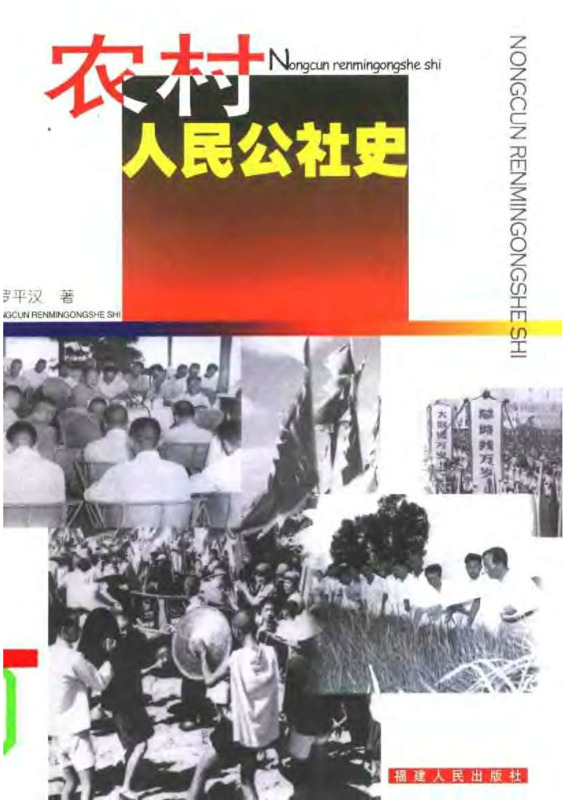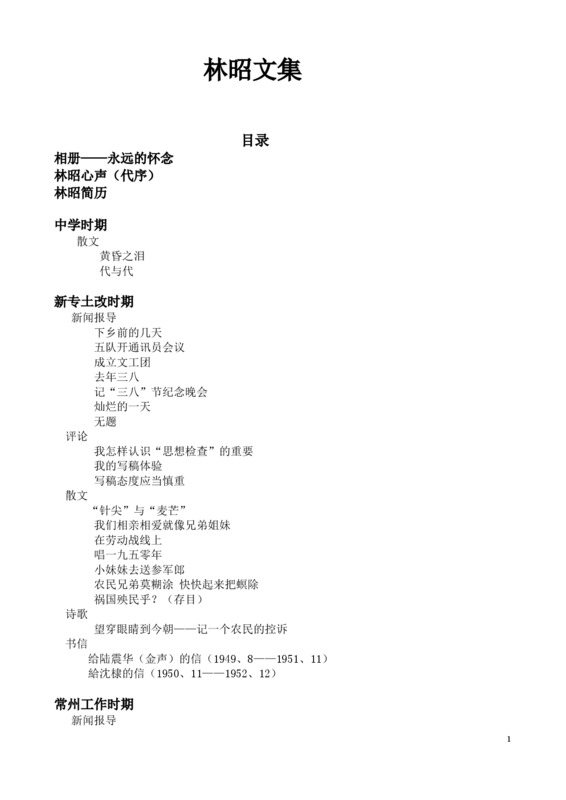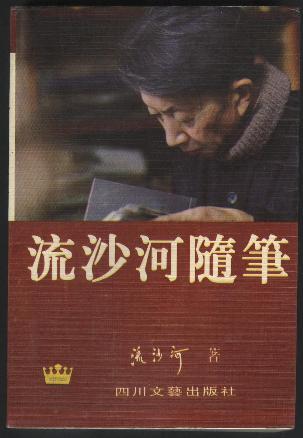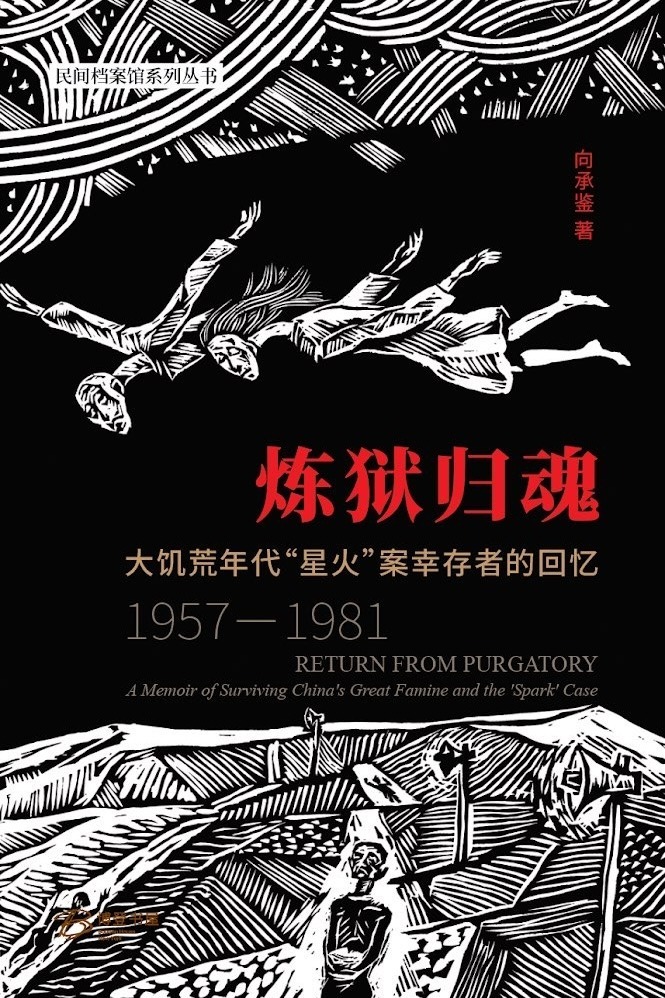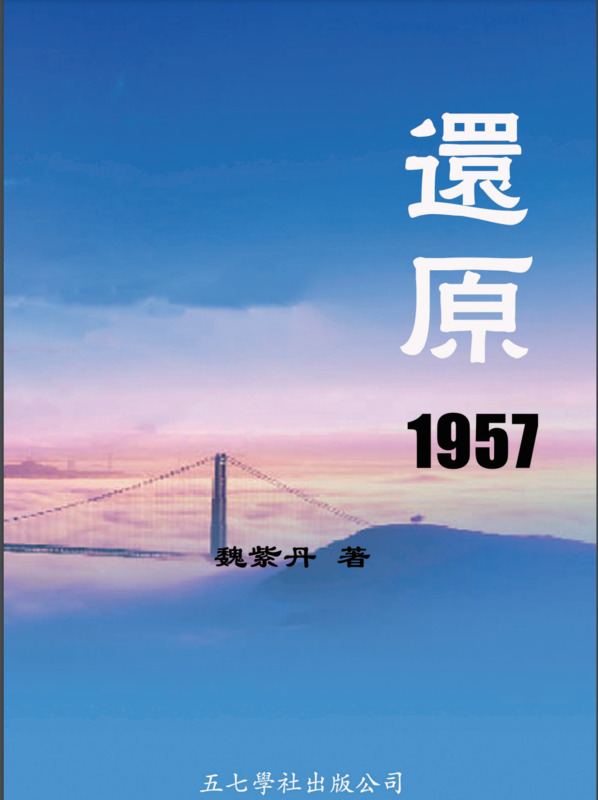Explore the collection
Showing 26 items in the collection
26 items
Book
Blood Letters: The Untold Story of Lin Zhao, A Martyr in Mao's China
This book is the brainchild of Prof. Lian Xi of Duke University, U.S.A. In March 2018, it was published in English by Basic Books in the U.S.A. In 2021, it was published in Chinese by Taiwan Business Press. Based on a large amount of historical materials as well as first-hand interviews, this book reconstructs Lin Zhao's life. It depicts the political development before and after the birth of New China, and presents the resilient will and beliefs of intellectuals in this era.
To purchase this book, please visit [the publisher](https://www.hachettebookgroup.com/titles/lian-xi/blood-letters/9781541644229/?lens=basic-books), or a bookseller.
Book
China's "Left Scourge"
The author of this book, Lu Jianhua (pen name Wen Lu), was a former member of the Chinese Academy of Social Sciences who published this book in 1993. He was sentenced to 20 years in prison in 2005 for "allegedly leaking state secrets" in connection with the "espionage case" involving journalist Cheng Xiang.
Book
Gan Cui: The Soul of Peking University-From Lin Zhao to the 1989 Democracy Movement
This book was originally published in the series *Micro Traces of the Past* - Documentary Volume - No. 6, edited by Huang Heqing, founded in 2007. Gan Cui, a student at Renmin University of China, was classified as a rightist in 1957. He became lovers with Lin Zhao, a rightist student who came from Peking University to work in the data room. Gan Cui was later sent to Xinjiang. When he returned, he learned that Lin Zhao had been killed. This book (in 140,000 words) is a manuscript of Gan Cui's memories of Lin Zhao in the context of the 1989 pro-democracy movement.
Book
History of the Rural People's Commune
The author of this book, Luo Pinghan, is a native of Anhua County, Hunan Province. He graduated from the Party History Department of Renmin University of China and served as director and professor of the Party History Teaching and Research Department of the Party School of the Central Committee of the Communist Party of China. This book was published by Fujian People's Publishing House in 2003.
The book is divided into nine chapters, narrating the history of the people's communes from the perspective of an orthodox view of historical development. The time nodes selected by the author include the rise, tide, adjustment, repetition, retreat, and disintegration of the Great Leap Forward. With Mao Zedong's affirmation, the system of people's communes was rapidly promoted across the country in 1958. At that time, the people's commune was both a production organization and a grassroots political power. Its rise and fanatical development are closely related to the subsequent Great Famine.
As a scholar within the system, the author’s view of history also belongs to the orthodox ideology. Although this book is narrated from the official ideology of the CCP, it uses rich and detailed historical materials to comprehensively and systematically introduce the history of the People's Communes, giving it a reference value for a comprehensive understanding of this movement.
Book
Holy Virgin on the Altar - A Biography of Lin Zhao, The
This book is a biography of Lin Zhao written by mainland writer Zhao Rui and published by Taiwan's Xiuwei Information Publishing House in 2008. The book describes Lin Zhao's life and family background in detail. The "Appendix" contains the recollections of several people involved.Purchase link: https://www.books.com.tw/products/0010431680.
电影及视频
In Search of Lin Zhao's Soul
Hu Jie narrates the life of Lin Zhao, a Christian dissident who was condemned as a Rightist in the late 1950s and executed during the Cultural Revolution. Prior to becoming a mentcritic of the government, Lin Zhao was an ardent believer of communism. She demonstrated talent in writing and speaking as a star student in Peking University. However, after criticizing the government in 1957 during the Hundred Flowers Campaign, she was cast as anti-revolutionary. Despite the government’s attempts to silence her, Lin Zhao continued to speak and write publicly, including contributing two epic poems to Spark, an underground student-run journal. In 1960, she was arrested, and despite being released briefly in 1962, spent the rest of her life behind bars, under extremely poor living conditions. Nevertheless, she continued to write in prison, sometimes with her blood. In 1968, at the age of 36, she was executed by a firing squad.
In this documentary, Hu Jie showcases many of Lin Zhao’s surviving writings and poetry. These pieces often contain criticisms of the communist regime, as well as commentary on policy issues pertaining to labor and land reform. In making this film, Hu Jie traveled around China to interview friends and associates of Lin Zhao, who knew her as a student, activist, or prisoner. This documentary includes excerpts from interviews with them, which inform us about Lin Zhao’s personality and motivations.
This documentary has contributed to a widespread revival of interest in Lin Zhao, who had almost become a forgotten figure until the film’s appearance.
Book
Lin Zhao Anthology
The Lin Zhao Anthology contains nearly one hundred of Lin Zhao's works, including essays, poems, commentaries, and news reports written since her middle school years, as well as all of Lin Zhao's manuscripts and letters that were written in prison and later returned to her family. The collection was edited and compiled by Lin Zhao's friends Tan Chanxue (see separate entry) and Ni Jingxiong, and printed into a book on their own. Most of Lin Zhao’s manuscripts written in her blood in prison were typed on computer by Tan Chanxue. This anthology is the most important historical material used by Prof. Lian Xi of Duke University for his research and writing of the book "Blood Letters: The Untold Story of Lin Zhao, a Martyr in Mao's China."
Book
Lin Zhao: No Longer Forgotten
This book contains a number of articles in memory of Lin Zhao. It concerns the death of Lin Zhao as well as Lin Zhao's love, pursuits, and disillusionment. This book was published by Changjiang Literature and Art Publishing House in 2000.
Book
Liushahe Essay
Liushahe is a famous Chinese writer and scholar, who entered Sichuan University in the fall of 1949, and was criticized and stigmatized nationwide during the 1957 Anti-Rightist Movement for his work *Grass and Trees* named by Mao Zedong himself, and then subjected to a variety of labor reforms (building roads during the day and sawing wood in the evening) for a cumulative total of 20 years. In 1979, he was transferred back to the Sichuan Provincial Literature Federation. Since 1985 he has been writing full-time, and has published a number of books, including *Essays on the Liusha River*. This book was published by Sichuan Literature and Art Publishing House in 1995. Many of the essays are related to his experiences when he was under labor reform. In November 2019, Liushahe passed away in Chengdu at the age of 88 due to illness.
Book
Mao in Power (1949-1976)
The author of this book, Shan Shaojie, is a scholar from mainland China. For several years, he wrote this book from an independent position. Former political secretary of Mao Zedong, Li Rui, and Princeton University professor, Yu Yingshi, wrote the foreword for this book. In addition to a systematic account of the Maoist era, Shan Shaojie's book "Mao in Power" emphasizes that almost all members of the Communist Party's highest decision-making echelons, with the exception of Mao Zedong, made efforts, in varying degrees and successively, to stop Mao's insanity. Moreover, they took turns to resist and ultimately to leave Mao alone, but did not really stop Mao's madness. This book was published by Linking Publishing in 2001 and has been reprinted several times.
Book
Mao: The Unknown Story
This book presents the dramatic life of Mao Zedong, revealing a wealth of unheard-of facts: why Mao joined the Communist Party, how he came to sit at the top of the Chinese Communist Party, and how he seized China step by step. Writers Jung Chang and her husband Jon Halliday took ten years to complete this book, interviewing hundreds of Mao's relatives and friends, Chinese and foreign informants and witnesses who worked and interacted with Mao as well as dignitaries from various countries.
Purchase link:https://www.amazon.com/Mao-Story-Jung-Chang/dp/0679746323.
Film and Video
Memory of Lin Zhao
Independent director Tiger Temple began shooting this film in 2010 and completed it in 2012, with subsequent revisions. The film features interviews with Lin Zhao's former lover Gan Cui as well as interviews with several independent scholars such as Qian Liqun and Cui Weiping. It is a powerful addition to Lin Zhao's memory. This film was selected as one of the top 20 finalists in the 2012 Sunshine Chinese Documentary Awards.
Book
Personal experiences of political movements
This book is a collection of many authors, most of whom were former senior officials of the Communist Party of China, such as Li Rui, Xiao Ke and others. Through the author's recollections, we can learn about the political movements of the Mao Zedong era, including the Cultural Revolution, the Anti-Rightist Movement, etc., as well as the details of many unjust cases, such as the Hu Feng case, which is quite convincing. This book was published by the Central Compilation and Translation Bureau Press in mainland China in 1998.
book
Return of the Soul from Purgatory: Memoirs of a Survivor of the "Sparks" Case from the Great Famine Era
In 1960, a group of faculty and students from Lanzhou University, who had been labeled Rightists and sent down to rural areas in Tianshui, Gansu, personally experienced the Great Famine. They self-published <i>Spark</i> magazine to expose and criticize the totalitarian rule that led to this catastrophe.<i>Spark</i> only published one issue before its participants were arrested and labeled as a counterrevolutionary group. Many were sentenced to long prison terms, and some were even executed. <a href=“http://108.160.154.72/s/china-unofficial/item/1759#lg=1&slide=0”>The first issue of <i>Spark</i> and more information about the "Spark Case" can be read here</a>.
<i>Return from Purgatory: A Survivor’s Memoir of the ‘Spark Case’ in the Great Famine Years (1957–1981)</i> is the autobiography of Xiang Chengjian, a key participant in <i>Spark</i> magazine. At the time, he and another student were responsible for printing the first issue, and he contributed six articles to <i>Spark</i>. Due to his involvement, he was sentenced to 18 years in prison for his role in the Spark case and was not rehabilitated until the early 1980s.
This memoir is divided into three sections, with a total of thirteen chapters spanning over 350,000 characters. It documents Xiang’s journey from being labeled a Rightist and sent to perform forced labor, to his arrest and 19-year imprisonment for his involvement in <i>Spark</i>, and finally to his struggle for rehabilitation and efforts to rebuild his life after release. In the book’s preface, scholar Ai Xiaoming offers the following assessment:
"Xiang Chengjian’s memoir holds significant value for the study of the intellectual history of contemporary China. First, it serves as another important testimony of the “Spark Case”, following Tan Chanxue’s memoir <i><a href=“”>Sparks: A Chronicle of the Rightist Counter-Revolutionary Group at Lanzhou University</a></i>, making it a crucial historical document on this act of resistance. The author reconstructs the social context before and after the case and describes how the young intellectuals behind <i>Spark</i> bravely challenged totalitarian rule. Second, the book provides a detailed account of labor camps in western China, with the author documenting his 18 years of forced labor in Gansu and Qinghai, unveiling a western chapter of China’s Gulag system. Third, it is a deeply personal intellectual history of a resister, showing the immense suffering, trials of life and death, and personal resilience under the crushing force of state violence."
The book’s appendix includes Xiang Chengjian’s six articles for <i>Spark</i>, an in-depth investigative report on him by journalist Jiang Xue, and a chronological record of the Spark Case compiled by Ai Xiaoming.
<i>Return from Purgatory</i> is published by Borden Press in New York and is the first book in the “People’s Archives Series”, published by the China Unofficial Archives. The author, Xiang Chengjian, has generously authorized the archive to share the book’s digital edition. Readers are encouraged to purchase the book to support the author and publisher.
Book
Revisiting 1957
<i>Revisiting 1957</i> is not just about the history of the Anti-Rightist Campaign but is also a theoretical reflection on that history. Written by Wei Zidan (the penname for Wei Liyan), the book has three sections: upper, in which the author discusses philosophical problems of the campaign; middle, in which he discusses the origins of the campaign; and lower, which contains his thoughts on lessons for the future. In Wei's view, the people who were declared rightists stood up for freedom of speech. The campaign, therefore, was an assault on freedom of expression and resulted in a human rights catastrophe for China. The book also has an eleven-part appendix with reflections on miscellaneous events.
Wei Zidan was born in Henan Province in 1933 and was a teacher in the Anyang Middle School. He himself was labeled a rightist and brings a unique insider's account of the movement but unlike some personal accounts of suffering, Wei also brings a more analytical approach to the issue.
After moving to the United States in his later years, he collected information and found the freedom to complete this book. Published in Hong Kong in 2013 by the May 7 Society Press.
Film and Video
Spark
<i>Spark</i> tells the story of a group of young intellectuals who risked their lives to voice their opinions about the Chinese Communist Party in the 1950s and 1960s. Following the Hundred Flowers Campaign of 1957, many intellectuals were branded as Rightists and banished to work and live in rural China. A group of students from Lanzhou University were among those sent to the countryside. There, they witnessed mass famine which resulted from government policies to collectivize agriculture and force industrialization in rural China. Shocked and angered by the government’s lack of response to the Great Famine, these students banded together to publish <i>Spark</i>, an underground magazine that sought to alert the Chinese population of the unfolding famine. The first issue, printed in 1960, included poems and articles analyzing the root causes of failed policies. However, as the first issue of <i>Spark</i> was mailed and the second issue was edited, many of these students, along with locals who supported the team, were arrested. Some of the key members of the publication were sentenced to life imprisonment and later executed, while others spent decades in labor camps.
In this 2014 documentary, Hu Jie uncovers the stories of the people involved in the publication of <i>Spark</i>. He conducts interviews with former members of the magazine who survived persecution, and also shows footage of the manuscripts of the magazine. A digital copy of the original manuscript of the first volume of <i>Spark</i> is also held on our website.
This film was awarded the Special Jury Prize for Chinese Documentary at the 2014 Taiwan International Documentary Film Festival and the Award of Excellence in the Asian Competition. Later, it won the Independent Spirit Award at the Beijing Independent Film Festival.
Periodicals
Spark, Issue 1
<i>Spark</i> was an underground magazine that appeared in the Tianshui area of Gansu Province in northwestern China during the 1959-1961 Great Famine. The magazine was lost for decades but in the late 1990s began to be republished electronically, becoming the basis of documentary films, essays, and books.
In 1959, the Great Famine was spreading across China. It was witnessed by a group of Lanzhou University students who had been branded as Rightists and sent down to labor in the rural area of Tianshui. They saw countless peasants dying of hunger, and witnessed cannibalism.
Led by Zhang Chunyuan, a history student at Lanzhou University, they founded <i>Spark</i> in the hope of alerting people to the unfolding disaster and analyzing its root causes. The students pooled their money to buy a mimeograph machine, carved their own wax plates, and printed the first issue. The thirty-page publication featured Lin Zhao's long poem, "A Day in Prometheus's Passion." The first issue also featured articles, such as "The Current Situation and Duty," which dissected the tragic situation of society at that time and hoped that the revolution would be initiated by the Communist Party from within.
The students planned to send the magazine to the leaders of the provinces and cities with a view to correcting their mistakes. But before the first issue of Spark was mailed and while the second issue was still being edited, on September 30, 1960, these students in Wushan and Tianshui were arrested, along with dozens of local peasants who knew and supported them. Among them: Zhang Chunyuan was sentenced to life imprisonment and later executed; Du Yinghua, deputy secretary of the Wushan County Committee of the Chinese Communist Party, was sentenced to five years' imprisonment for having interacted with the students, and later executed. Lin Zhao was detained and also executed. Other key members, such as Gu Yan, Tan Chanxue, and Xiang Chengjian, were all sentenced to long years in labor camps.
In the 1990s, Tan Chanxue devoted herself to researching historical information and figures to bring this history to life. She found in her personnel file (<i>dan'an</i>)photographs of the magazine, as well as self-confessions and other evidence used in the students' trial. Eventually, the photos were collated into PDFs, which began to circulate around China.
Editors' note: This site the original handwritten version and a PDF of all the articles from the first issue of <i>Spark</i>. We will also make available transcripts of the essays in Chinese and are searching for volunteers to translate the texts into English. Please contact us if you're interested in helping!
Book
Summer of 1957: From One Hundred Schools of Thought to Two Schools of Thought
This book comprehensively records and analyzes the Anti-Rightist Campaign.
The author Zhu Zheng was born in 1931. He was once the editor of Hunan People's Publishing House and a well-known expert on Lu Xun in China. He was classified as a Rightist in 1957 and personally experienced the Anti-Rightist Campaign. This book references information from CCP party newspapers at that time, as well as his recollections, making this book informative and reliable.
The "two dueling schools of thought" in the subtitle of this book comes from The Selected Works of Mao Zedong. Mao called for one hundred schools of thought to contend but in fact only intended for two to compete: the bourgeoisie and the proletariat.
This book was first published by Henan People's Publishing House in 1998. It is one of the earliest studies of the movement in China.
Book
The Doubtful Clouds of 1957-- Cracking the Code of the Anti-Rightist Movement
The Anti-Rightist Movement in China began in 1957 with the reorganization of intellectuals, followed by the Great Leap Forward, the People's Commune, and a series of calamities such as the Great Famine. The Hong Kong Five Sevens Society was founded in 2007 with the aim of collecting, organizing, and researching historical information about the Anti-Rightist Movement. It is headed by Wu Yisan, a writer who moved to Hong Kong from mainland China. The author of this book, Shen Yuan, who was also a Rightist at the time. He has systematically researched and organized the Anti-Rightist Movement that took place in 1957 and attempted to answer some of the unanswered questions.
Book
The Goddess of Freedom of the Chinese Nation -- An Anthology of Essays in Honor of Lin Zhao 40 Years After Her Death
Lin Zhao, formerly known as Peng Lingzhao, a native of Suzhou, was admitted to the journalism department of Peking University in 1954, but was classified as a Rightist in 1957. She was arrested and imprisoned in October 1960 because of her involvement with the underground magazine <i>Spark</i>. In 1965, Lin Zhao was sentenced to 20 years' imprisonment for "counter-revolutionary crimes." On April 29, 1968, she was sentenced to death and executed on the same day at the age of 36. This book is a collection of more than sixty articles written in memory of Lin Zhao.



